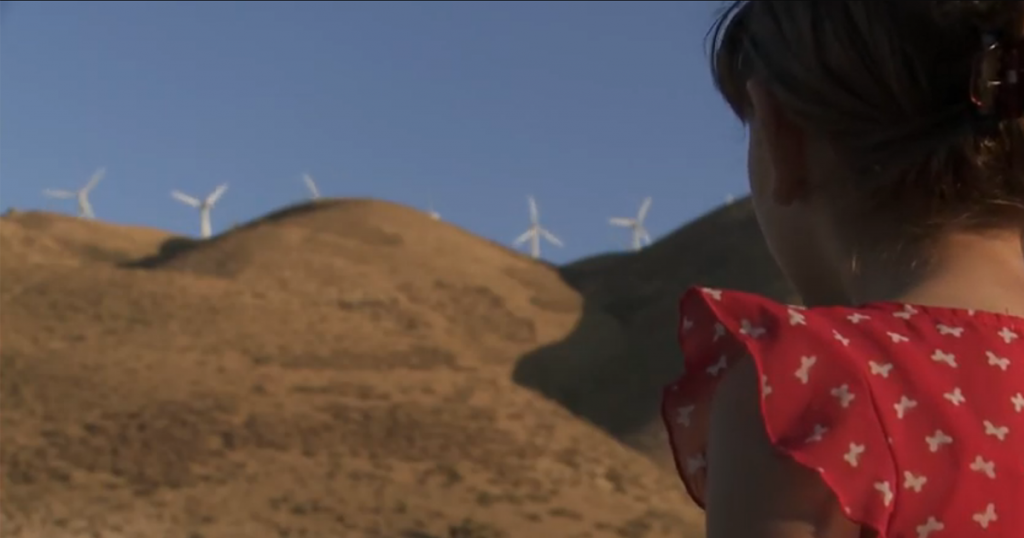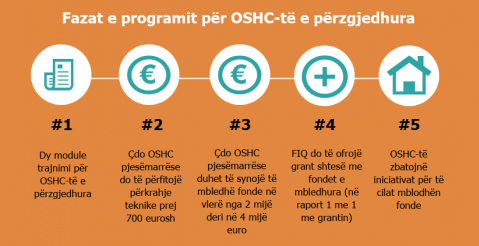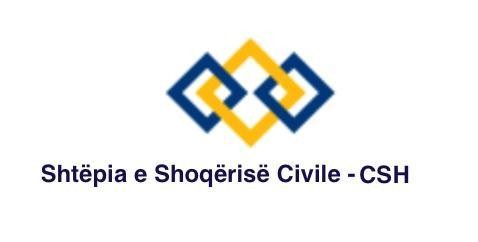KOSID
The Kosovo Civil Society Consortium for Sustainable Development, KOSID, operates based on the “triangle approach”, which sees its components jointly contributing to the mission of the organization by each individually fulfilling their specific roles.
As a consortium of leading civil society organizations, KOSID is composed of think tanks, independent media and grassroots organizations working with local communities, with all of the organizations working toward sustainable development. The idea was to pool the specific skills of each organization under one roof, in order to be more efficient in engaging in crucial debates for the future of Kosovo.
KOSID’s main goal is to raise the level of debate in addressing development challenges in Kosovo. Through the research and outreach capacities at the disposal of the Consortium, KOSID is well placed to learn about issues in development policy and to advocate for better decision-making in consultation with all stakeholders, as well as actively engage in debates on energy policies in Kosovo.
The energy sector in Kosovo has been disorganized for over a decade. The current strategies addressing the energy sector are primarily focused on building a new coal-fired power plant and mining more of Kosovo’s lignite.
As part of the No New Coal – A Safer Future campaign, KOSID argued that there are more intelligent energy alternatives for Kosovo. These alternatives need to be further researched before a decision on new power plants is taken, in order to ensure that Kosovo’s economic development does not create more harm than good.Over the past few years KOSID has advocated, and continues to advocate for the following five principles of sustainable development in Kosovo:
1. No new coal
2. Renovating Kosovo B and shutting down Kosovo B2.
3. Energy Efficiency – renovating the distribution network, isolating buildings and adopting a construction code.
4. Renewable energy – facilitating investments in wind, sun and geothermal energy.
5. Complying with the EU Energy Treaty, market liberalization and activating the energy transmission line between Kosovo and Albania.
Taking into consideration the abundance of lignite in Kosovo and the great trust the government places on this source of energy generation, KOSID has continuously engaged in exploring means of an energy transition away from lignite, and the negative consequences that come with it, and toward renewables, energy efficiency, energy market liberalization, co-generation opportunities and interconnection with Albania.
Through initiating the “No New Coal” campaign, the Consortium exercised continuous public pressure on the decision-making bodies of the government through its advocacy. This was done particularly in relation to energy policies that do not rely on coal, and especially on new coal, including campaigning against the construction of a new coal power plant, “Kosova e Re”.
KOSID has also been engaged in publishing studies related to the potential of renewable energy, increasing energy efficiency in businesses, households and the network, as well as topics related to market liberalization.
Such efforts have until now been successful in delaying the construction of the new coal power plant and regardless of the path the government will choose to follow, our studies will be successful in the efforts to diversify and expand the mixture of energy sources, and in resolving the issue of energy security.
Through its core organizations, KOSID has also been involved in empowering citizens of marginalized communities, particularly those in the village of Hade and the town of Obiliq, where coal reserves lay underneath. Issues affecting residents here include the involuntary displacement of these citizens in order to build the new power plant, the heavily polluted air they breathe and their fundamental right to live in a healthy environment.Through awareness raising campaigns, including protests, planting trees, visits of the Inspection Panel of the World Bank related to the involuntary displacement of citizens, education campaigns and creating a local branch – the Initiative for Environment and Local Development or IAZHL – KOSID managed to bring the communities to the center of public attention, while contributing to their empowerment.
Finally, KOSID has also been engaged in other environmental challenges Kosovo faces, including the revitalization of the Trepca mine complex and a planned development in the Sharri mountains.
The revitalization of Trepca was reviewed by KOSID, particularly from a legal perspective, with the Consortium outlining the benefits that would follow if the mine complex was revitalized in a sustainable manner while remaining a publicly owned enterprise.
KOSID also argued that the proposal of an Inter-ministerial Commission to intervene in the Sharri region would be in violation of EU Environmental Directives, as the plan infringed on protected zones, including environmental zones and natural reservoirs. KOSID’s advocacy in protecting the environment in this area was successful, as when the Commission issued its decision it excluded the protected zones from the project



